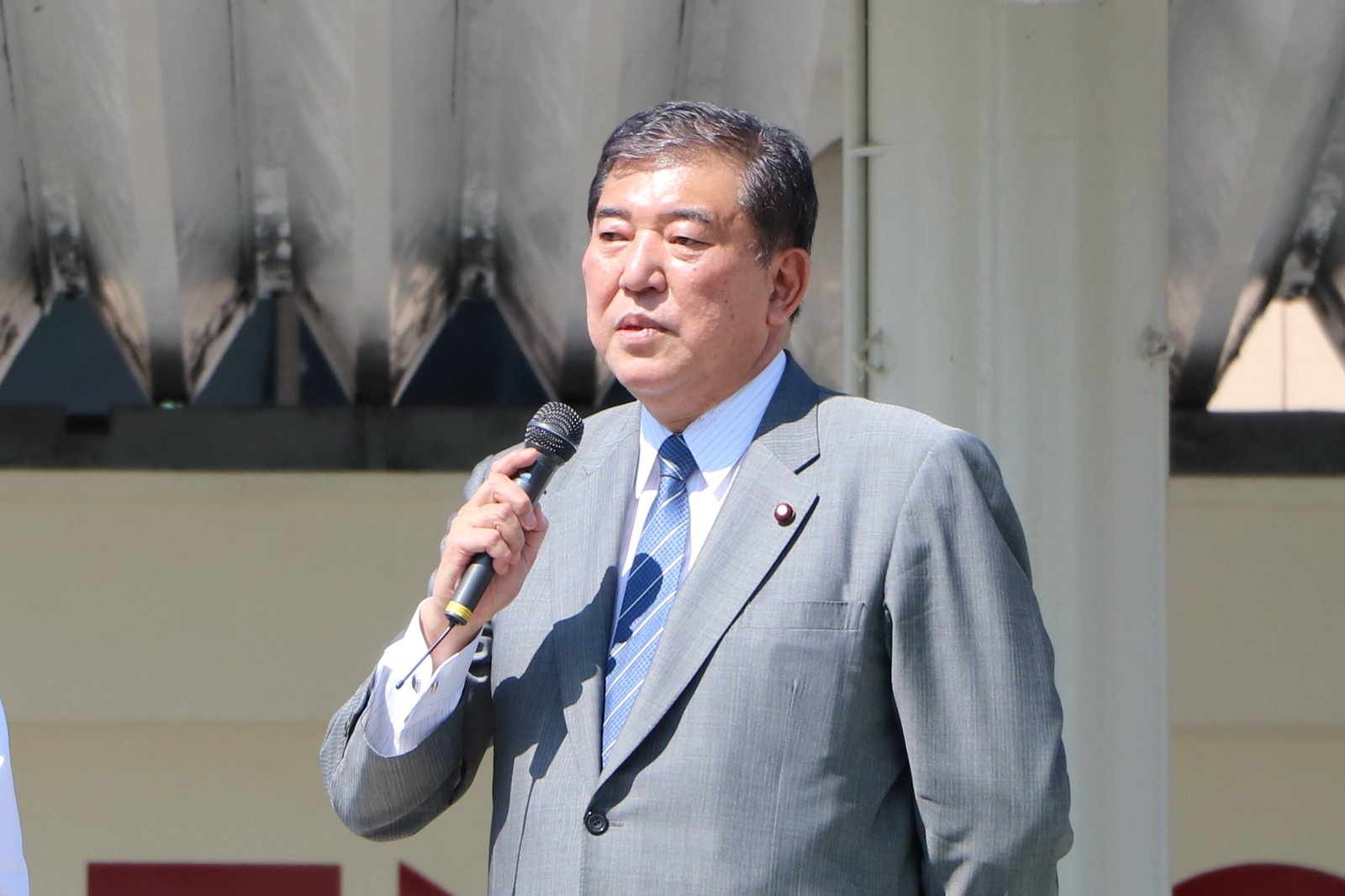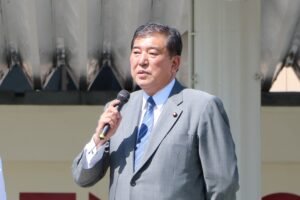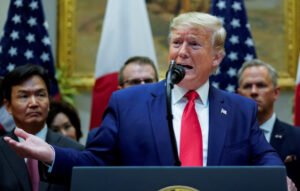No Compromise in U.S.-Japan Tariff Negotiations: PM Ishiba
- Japan’s Prime Minister Shigeru Ishiba has declared that Japan will not compromise in its upcoming tariff negotiations with the U.S.
- This statement comes after the U.S. imposed increased import duties on cars, steel, and aluminum, and implemented “reciprocal” tariffs on its trading partners.
- The U.S.’s tariff policies have raised concerns about accelerating inflation in the U.S. and potentially damaging its economic growth.
- The ongoing tariff negotiations between Japan and the U.S. could set a precedent for future international trade relations and have far-reaching implications for global economic stability.
In a recent development that has caught the attention of the global economy, Japan’s Prime Minister Shigeru Ishiba has made a firm declaration. He stated that Japan will not compromise in its upcoming tariff negotiations with the United States. This statement comes in the wake of the U.S. imposing increased import duties on cars, steel, and aluminum, and implementing reciprocal tariffs on its trading partners. Ishiba emphasized that Japan is not considering retaliatory tariffs against the U.S., despite the latter’s aggressive tariff policies.
The Prime Minister’s stance is backed by Ryosei Akazawa, Japan’s economic revitalization minister, who is leading the negotiations. Akazawa has ruled out discussing currency issues in the talks, stating that such matters should be left to the finance chiefs of the two nations. This approach is reminiscent of the Plaza Accord in 1985, when major economies, including Japan, agreed to help depreciate the U.S. currency.
Global Impact and Historical Parallels
However, the current situation is more complex. The U.S.’s imposition of higher import duties has raised concerns about accelerating inflation in the U.S. and potentially damaging its economic growth. This is particularly concerning for Japan, as higher tariffs on imports from the U.S. could exacerbate inflation in Japan, which is already grappling with surging energy and food prices.
Despite these concerns, Ishiba has not completely ruled out the possibility of retaliatory tariffs. This cautious approach reflects Japan’s strategy of prioritizing its national interests over quick negotiations. The U.S.’s tariff policies have also had a significant impact on other countries. For instance, the U.K. has expressed concerns about the potential for a global trade war. U.K. Prime Minister Keir Starmer has called for cool heads and stated that Britain would only strike a deal if it is in the national interest.
In a similar vein, Turkey’s President Recep Tayyip Erdogan has stated that his country is better positioned to weather the turmoil triggered by U.S. tariffs than other nations. Meanwhile, China has voiced its opposition to the U.S. tariffs and vowed to continue with countermeasures.
Japan’s Economic Measures and Future Implications
The global response to the U.S.’s tariff policies underscores the potential for a significant shift in international trade relations. This situation bears some resemblance to the Smoot-Hawley Tariff Act of 1930, which raised U.S. tariffs on over 20,000 imported goods. The Act led to retaliatory tariffs from other countries, contributing to the severity of the Great Depression.
In Japan, the government and ruling parties are considering drafting a supplementary budget for the current fiscal year to mitigate the fallout from the U.S.’s aggressive tariff policies. This move is indicative of the serious economic implications of the tariff issue for Japan.
In conclusion, the ongoing tariff negotiations between Japan and the U.S. are of significant importance, not just for the two countries, but for the global economy as a whole. The outcome of these talks could set a precedent for future international trade relations and have far-reaching implications for global economic stability. It is crucial for all stakeholders to keep a close watch on these developments and prepare for potential shifts in the global economic landscape.









Post Comment